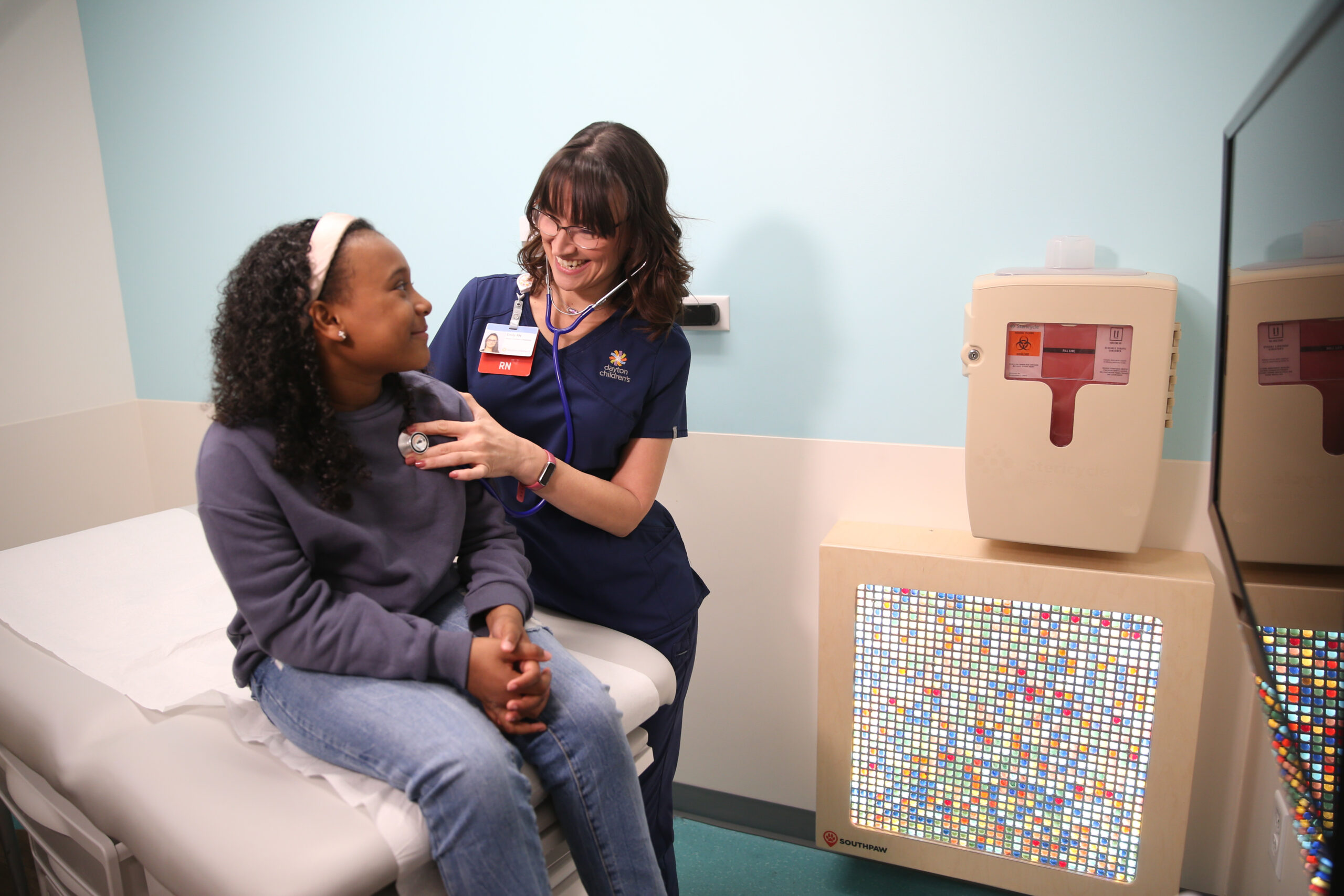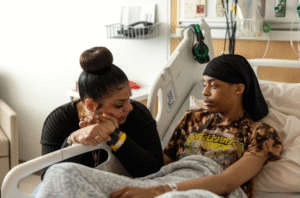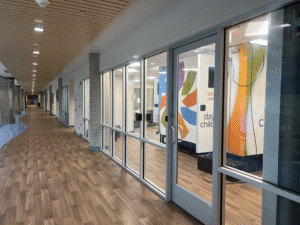research to improve care for children with diseases of the lungs
Dayton Children’s participates in research to better understand and treat diseases related to the pulmonary system, such as cystic fibrosis, sleep apnea and asthma. These include studies to evaluate new drugs, develop less invasive diagnostic testing techniques, reduce hospitalizations, and more.
cystic fibrosis research
Dayton Children’s is a member of the Cystic Fibrosis Foundation’s Therapeutics Development Network, the largest network of cystic fibrosis clinical trials in the world. This means our patients have the opportunity to participate in the network’s extensive research studies. We also maintain a registry to track our patients’ treatments, outcomes and health status.
All cystic fibrosis patients who are eligible for a research study are given an opportunity to participate, but participation is voluntary. Our providers will discuss what studies are available to each patient. If you are interested in learning more about a particular research study, one of our pulmonary research nurses will talk to you about what is involved. This conversation could include topics such as:
- What drug or drugs are being studied
- What kind of testing or procedures will be used
- Possible side effects from treatment
- The length of the study and number of clinic visits involved
Our pulmonary research nurses are responsible for coordinating the program’s clinical research studies. They review research studies to decide which ones are a good fit for our patients, educate families about research participation, help families enroll in studies and monitor each patient’s involvement. They also keep families informed about other studies taking place at cystic fibrosis centers in our region. When patients travel to another center for a research study, Dayton Children’s typically remains their center of care.
For more information about cystic fibrosis studies at Dayton Children’s, please contact:
- Gary Mueller, MD, pediatric pulmonologist and director of the Cystic Fibrosis Center at Dayton Children’s, at muellerg@childrensdayton.org
- Or Sandy Bartosik, MS, RN, CCRC, pulmonary research nurse, at bartosiks@childrensdayton.org
frequently asked questions
We offer a variety of research studies, including:
- Studies that evaluate different types of medications, such as CFTR modulators, anti-infective drugs, aerosolized antibiotics and anti-inflammatory medications;
- Nutritional studies, such as one trial that is evaluating a new encapsulated enzyme for overnight GI-tube feeds.
- Mucociliary clearance studies
Most of the cystic fibrosis studies we offer come through the Cystic Fibrosis Foundation’s Therapeutics Development Network. Some come to us from pharmaceutical companies. All are reviewed thoroughly to ensure patient safety.
Each study has different criteria related to factors such as a patient’s age, pulmonary function, or the genetic mutation responsible for a patient’s cystic fibrosis. Our nurses are always looking to connect patients to research opportunities. In fact, the entire cystic fibrosis team meets weekly to talk about which patients might qualify for current studies.
pulmonary research
Dayton Children’s researchers are exploring new therapies for patients with pulmonary conditions such as asthma and sleep apnea.
Dayton Children’s is participating in the Ohio Pediatric Asthma Repository (OPAR), an initiative funded by the State of Ohio. All children’s hospitals in the state submit data about their asthma patients to OPAR. The data is used to better understand what factors lead to hospitalization for acute asthma attacks, and compare the effectiveness of different treatment strategies for children who are hospitalized for asthma symptoms. To learn more, please contact Alexandra Stolfi, MBA, RN, OCN, clinical operations manager, at StolfiA1@childrensdayton.org
- Researchers at Dayton Children’s are utilizing an advanced airway imaging tool that is designed to guide the treatment planning process for children with obstructive sleep apnea. This is a part of a larger effort to deliver personalized medicine to pediatric patients with sleep apnea. The research team presented its preliminary results at the American Thoracic Society Meeting at Washington, DC, in May 2017.
- Other research projects explore the mechanisms related to sleep apnea in obese children. This study uses state-of-the-art computational tools to simulate airflow in three-dimensional models of a patient’s airway.
To learn more, please contact Maninder Kalra, MD, PhD, pediatric pulmonologist, at maninderk@childrensdayton.org
find a research program
Learn more information about clinical research at Dayton Children’s.
care that goes above and beyond
Because every child deserves care that goes above and beyond, Dayton Children’s provides compassionate, expert care for kids of all ages. Find a provider, schedule an appointment, or learn more about conditions we treat today.





